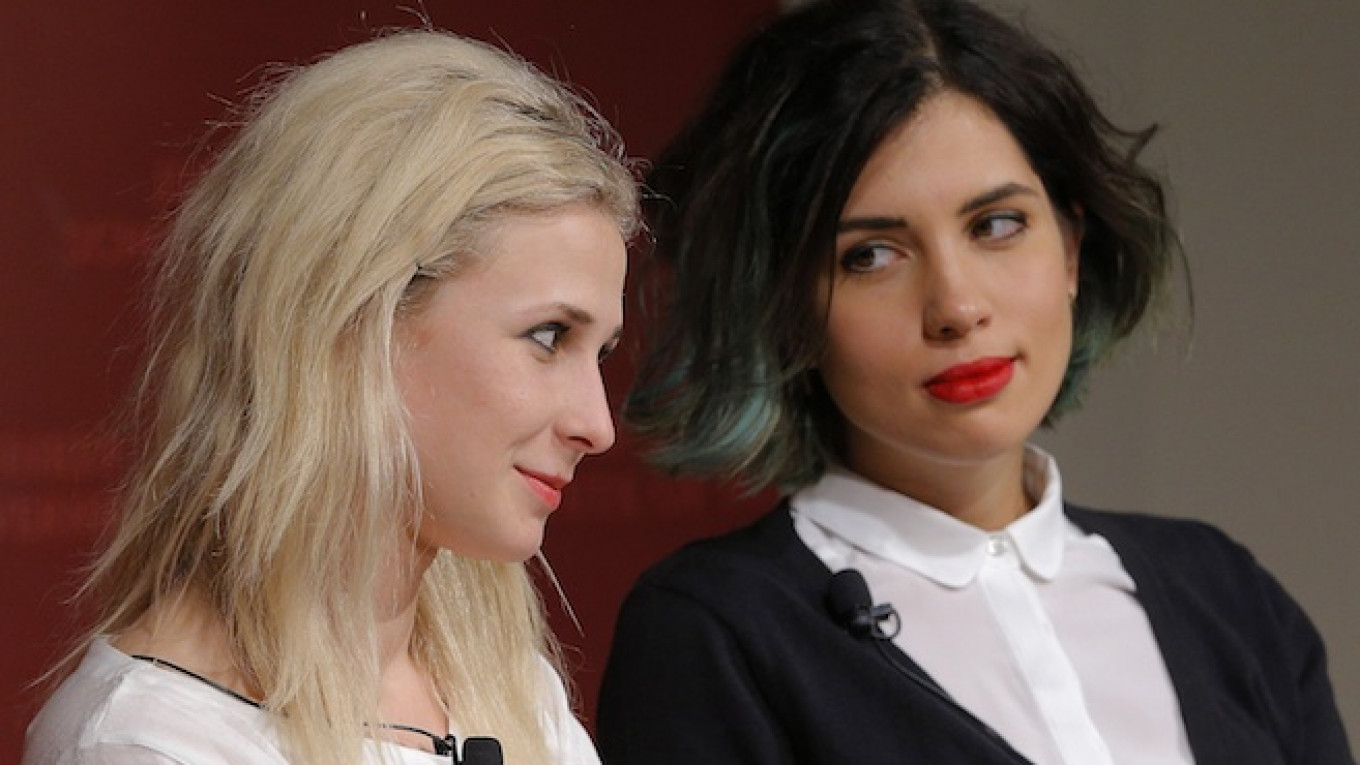CAMBRIDGE, Mass. — Two members of Russia's Pussy Riot protest group found supporters of their opposition to President Vladimir Putin during their almost two years in prison, even fielding autograph requests from guards, the activists have said.
The pair, Maria Alyokhina and Nadezhda Tolokonnikova, were jailed after performing a profanity-laced protest against Putin at Moscow's Christ the Savior cathedral in 2012. They were released from prison in December, three months before the scheduled end of their sentences and two months before the Sochi Olympics. Many in the West had criticized the harshness of their sentences, charging that Russian authorities were cracking down on political dissent.
"There really is a very big urge among ordinary Russians for change, even among people who serve the country, for change and for the country to look dramatically different, but the problem is the time is not right and people do not yet see the right method for that change to happen," Alyokhina told an audience of students and academics at Harvard University in Cambridge, Massachusetts.
"I really did meet people like that among a lot of the uniformed people that we met in our time in prison," Alyokhina said, relying on Pyotr Verzilon, Tolokonnikova's Canadian-Russian husband, to translate her remarks into English from Russian.
More recently in his 14-year rule, Putin has come under international criticism for what officials in Ukraine and its backers contend has been the Russian military's support of separatists battling Ukrainian forces in that country's east. Russia denies that its military has participated in the conflict that has killed more than 3,000 people.
Tolokonnikova deflected a question from an audience member about whether the group has more supporters in the U.S. or Europe than in Russia, noting that backing them vocally in Russia carries harsher consequences.
"When you talk about supporters, you have to ultimately talk not just about numbers but the things that people had to endure by supporting us," Tolokonnikova said, also relying on Verzilon to translate.
"While the number of our active supporters might be higher in the West, you have to realize that supporters can be quite comfortable … whereas in Russia you are going to have to go through some difficulties."
A Message from The Moscow Times:
Dear readers,
We are facing unprecedented challenges. Russia's Prosecutor General's Office has designated The Moscow Times as an "undesirable" organization, criminalizing our work and putting our staff at risk of prosecution. This follows our earlier unjust labeling as a "foreign agent."
These actions are direct attempts to silence independent journalism in Russia. The authorities claim our work "discredits the decisions of the Russian leadership." We see things differently: we strive to provide accurate, unbiased reporting on Russia.
We, the journalists of The Moscow Times, refuse to be silenced. But to continue our work, we need your help.
Your support, no matter how small, makes a world of difference. If you can, please support us monthly starting from just $2. It's quick to set up, and every contribution makes a significant impact.
By supporting The Moscow Times, you're defending open, independent journalism in the face of repression. Thank you for standing with us.
Remind me later.






